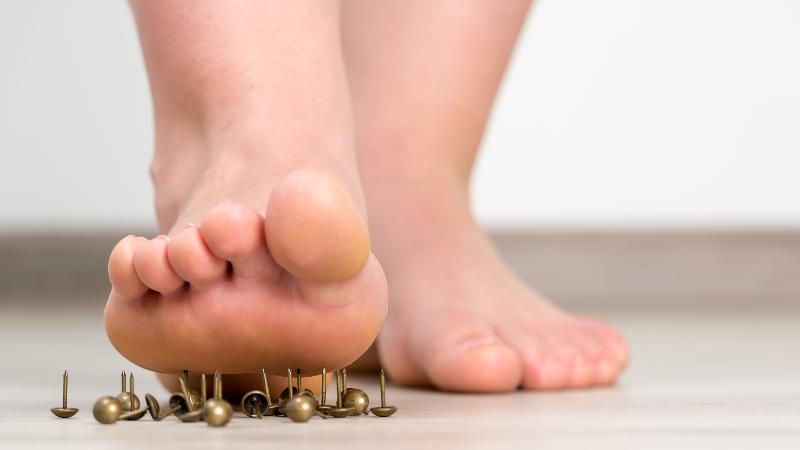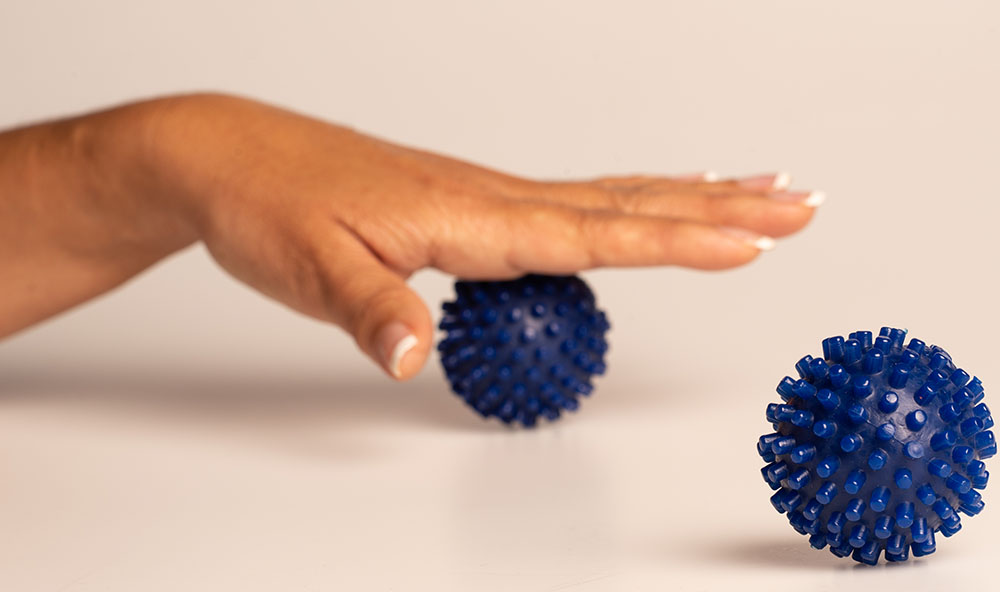
Numbness, tingling, pins and needles, even pain, in hands and feet are all symptoms of a common but little-researched side effect of cancer chemotherapy that can vastly affect survivors’ quality of life.
- 60 per cent of chemotherapy patients have peripheral neuropathy symptoms
- Symptoms vary in severity and include numbness, tingling, and pain in the hands and feet
- Severe symptoms can lead to stumbling, inability to hold a cup
- Study seeks volunteers to trial home-based therapies to reduce or stop PN
To help cancer survivors self-manage and reduce the symptoms of peripheral neuropathy (damage to sensory nerves in hands and feet), Professor Patsy Yates, from QUT’s Institute of Health and Biomedical Innovation, is calling for study participants who have completed chemotherapy treatment within the past three months to three years.
Professor Yates, who leads the NHMRC-funded study, said, so far, study participants had reported a variety of mild to severe symptoms after chemotherapy.

“We need many more volunteers to help us trial one of two therapies that do not rely on medication that can be done at home,” Professor Yates said.
“There is no pattern to chemotherapy-induced peripheral neuropathy (CIPN) with sufferers ranging in ages and symptoms.
“We have survivors with different types of cancer and chemotherapies who have described numbness in their feet which affects balance so that they are stumbling and falling.
“Other survivors who have CIPN in their hands report being unable to hold a cup of tea, or do up buttons.
“Survivors have described altered sensations in their hands and feet as tingling, pins and needles, coldness, a dull ache, and pains that can be constant or intermittent.”
Professor Yates said many patients treated with multiple chemotherapy agents were affected by CIPN but there was no particular pattern for it and the type of neurotoxic chemotherapy received.
“We cannot predict who is going to have CIPN following chemotherapy. Recent studies into CIPN have shown that it is commonly seen in 60 per cent of chemotherapy patients three months after treatment," she said.
Study participants are allocated one of two simple therapies – either massage with a massage ball or a heat pad that they do at home.
“We send study participants these devices, teach them how to use them and ask them to keep a diary of their symptoms to monitor their response to the therapy," Professor Yates said.
“Because the symptoms are so variable and can affect only some people undergoing chemotherapy, we need many more eligible cancer survivors to join this trial so that we can find ways to reduce or even stop CIPN.”
To inquire about the Chemotherapy-Induced Peripheral Neuropathy Clinical Trial or to register to join the trial go to https://research.qut.edu.au/real/cipn/ or contact the CIPN study team on 0412 009 133.
QUT Media contacts:
Niki Widdowson, QUT media contact: 07 3138 2999 or n.widdowson@qut.edu.au
After hours: Rose Trapnell, 0407 585 901 or media@qut.edu.au.


